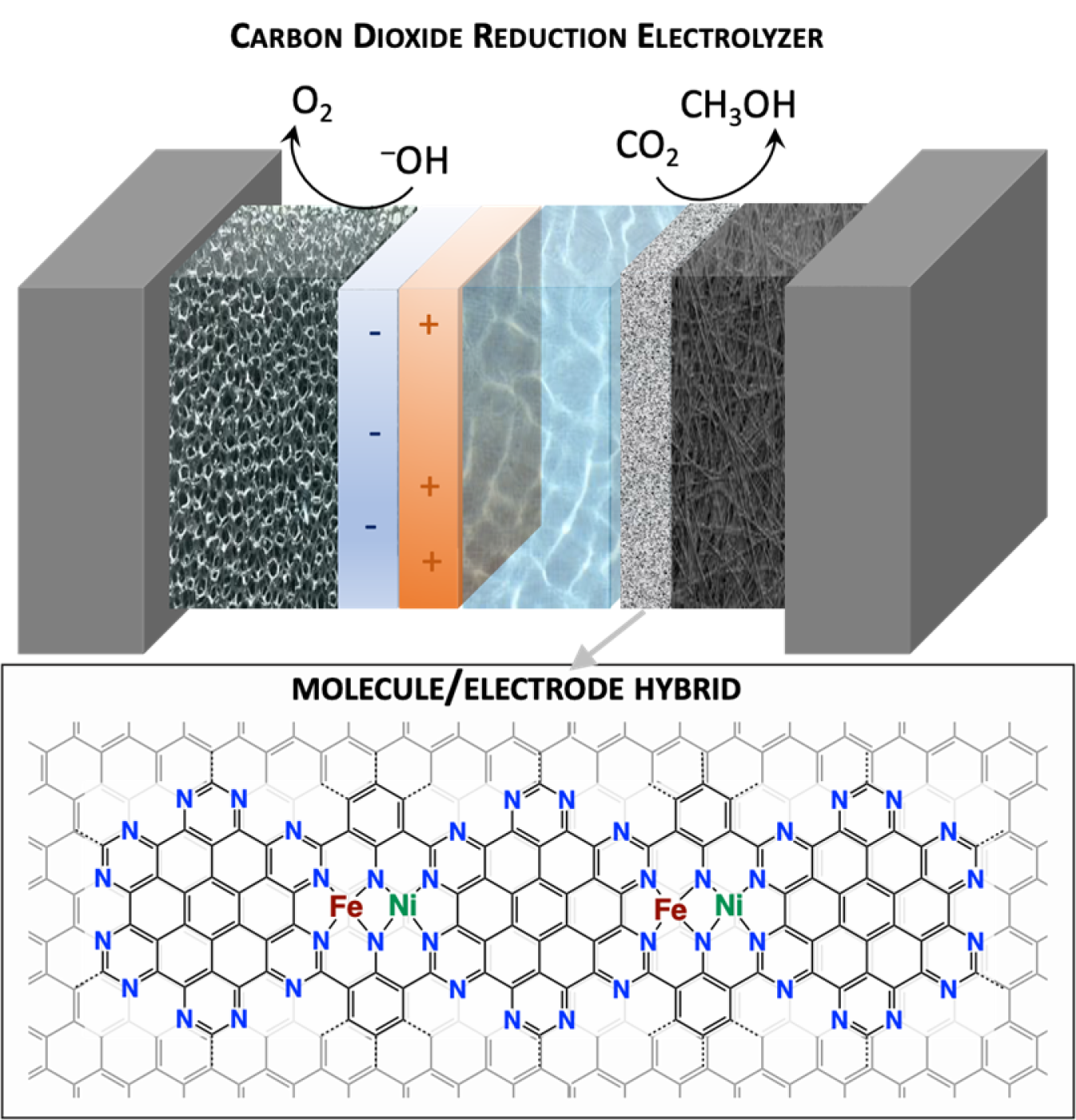Scientists from multiple national labs are finding new ways to repurpose carbon dioxide.
January 20, 2023
Author: Meltem Urgun-Demirtas, Laboratory Relationship Manager, Argonne National Laboratory
Read Meltem's bio ►
Meet the other bloggers ►
Return to Bioprose blog ►
Scientists from multiple national labs are finding new ways to repurpose carbon dioxide.
According to the National Oceanic and Atmospheric Administration (NOAA), the global average for atmospheric carbon dioxide (CO2) set a record in 2021. The annual rate of CO2 emissions increase over the past 60 years is about 100 times faster than previous natural releases, such as those that occurred at the end of the last ice age 11,000 to 17,000 years ago. Primarily, this rapid increase is due to human-driven activities. Carbon utilization technologies can help reduce those emissions.
A collaborative team of U.S. Department of Energy Bioenergy Technologies Office (BETO)-funded scientists from Argonne National Laboratory (ANL) and National Renewable Energy Laboratory (NREL) are examining how to make better use of CO2 generated by industry, transportation, and agriculture by turning it into sustainable aviation fuel and other useful products.
It’s difficult to lower the oxidation state of the carbon atom, and one of the major hurdles associated with reductive CO2 utilization is in the initial step of carbon activation. BETO and partners are working to develop technologies that efficiently convert reduced forms of carbon into affordable biofuels and bioproducts.
The project is led by Ksenia Glusac, who holds an appointment in chemical sciences and engineering at ANL and is a professor of chemistry at the University of Illinois, Chicago. With colleagues Deborah Myers and Peter Zapol of ANL and Wilson Smith of NREL, Glusac is using a two-step approach to find new uses for carbon dioxide. In the first step, using electrochemical methods, the Glusac team converts carbon dioxide into methanol, the ANL team focuses on catalyst development, and the NREL team works on electrolyzer assembly and scale-up. Afterwards, other researchers at the national laboratories upgrade the methanol into fuels by feeding it microorganisms and algae. The goal is to identify catalysts that can make beneficial products (such as an aviation fuel) efficiently and selectively.

Carbon Dioxide Reduction Electrolyzers are able to convert C02 emissions into valuable materials. Photo courtesy of ANL
The novelty of the research is exciting for a couple of reasons. By fine-tuning diverse molecular building blocks, the Glusac team is designing catalysts with molecular electrodes that exhibit high selectivity toward methanol. This approach is important, since carbon dioxide can be converted into a myriad of valuable products, such as fuels, chemicals, plastics, and materials from carbon resources.
Additionally, the research explores the diverse possibilities of methanol. Methanol can generate electricity when used for fuel cells and can be used as a heating fuel for boilers or as a blended fuel for road, marine, or (potentially) aviation applications. Additionally, methanol is used as a chemical industry feedstock for the synthesis of formaldehyde, acetic acid, and other health and life sciences products. While there are carbon emissions from the production of methanol from CO2, they can be significantly lower than those associated with fossil fuels when renewable electricity is used during the process.
“A net-zero greenhouse gas economy of the future will still need carbon-based fuels and chemicals,” said BETO Director Dr. Valerie Sarisky-Reed. “This research will expand the resource pool of renewable carbon that can be leveraged to meet those needs. Making renewable methanol from CO2 and electricity provides an innovative route to a host of fuels and products."
The long-term challenge of this exciting research will be scaling up scientific findings into commercial applications. With atmospheric carbon dioxide levels on the rise, innovative research that finds ways to transform CO2 in the atmosphere into something positive is more important than ever.
Dr. Meltem Urgun-Demirtas

Meltem Urgun-Demirtas is a group leader of process development research in Argonne National Laboratory’s Energy Systems division, where she brings over 15 years of diverse experience in waste and water treatment, biofuels production, and materials synthesis for energy and environmental applications. She has extensive experience in design and operation of chemical and bioprocesses from bench to field scale, techno-economic assessment, modeling and optimization of processes. She is a fellow of the Northwestern University—Argonne Institute of Science and Engineering. Dr. Urgun-Demirtas has published over 30 journal papers and 50 conference papers and holds four patents/patent applications. Prior to working at Argonne, she was a research engineer at BP North America. She received a Bachelor of Science in chemical engineering and a Ph.D. in environmental engineering.
Meet our other bloggers ►
Return to Bioprose blog ►


